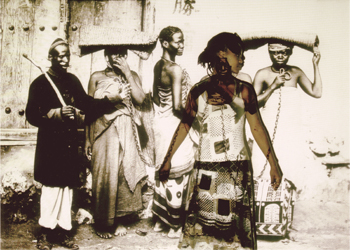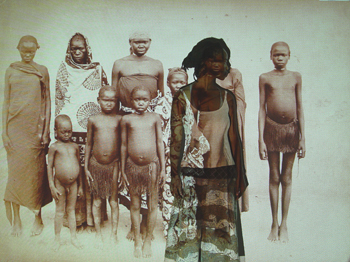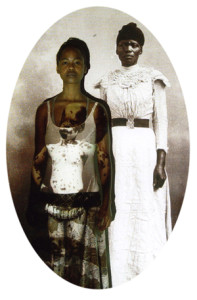
In Collection: Nomusa Makhubu, Comparison I, 2013 in Hood Museum of Art, Dartmouth USA.
About:
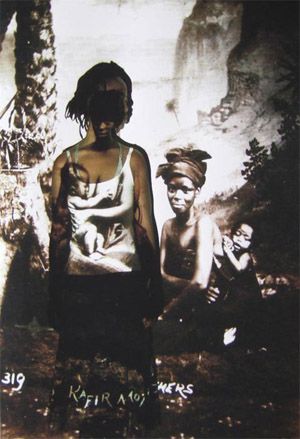 Mothers Breast Feeding, 2013.
Mothers Breast Feeding, 2013.
Born 1984. Lives and works in Cape Town
Makhubu has established herself as one of the new generation of lens based artists to explore issues of identity, culture, land, rights, economy and religion. Her acclaimed series, Self-Portrait Project alludes to the continued alienation and estrangement in an era where the focus is inclined toward self and individual identity as opposed to collective and communal life. One of the canonical meanings that Achille Mbembe (2002: 241) argues can be attributed to slavery and colonialism (as well as Apartheid) is dispossession, a process in which juridical and economic procedures have led to material expropriation. Makhubu’s latest series The Flood has received deserved critical acclaim. It marks a departure from her previous work, shifting from the personal to the public.
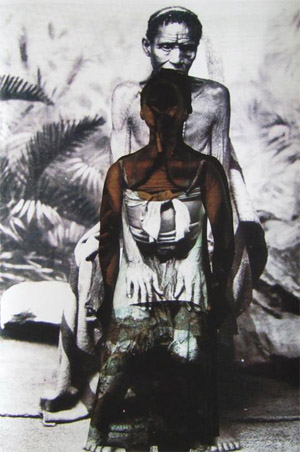 Queen, 2007-2013.
Queen, 2007-2013.
In November 2013, she was selected as one of fourteen female photographers from around the world invited to participate in the Semiha Es – Women Photographers International Symposium, in Istanbul, Turkey. Her paper, The Power and Terror of the Enactment of Collective Memory in Performative Photographycommented directly on her own work, particularly the Self Portrait Project series.

